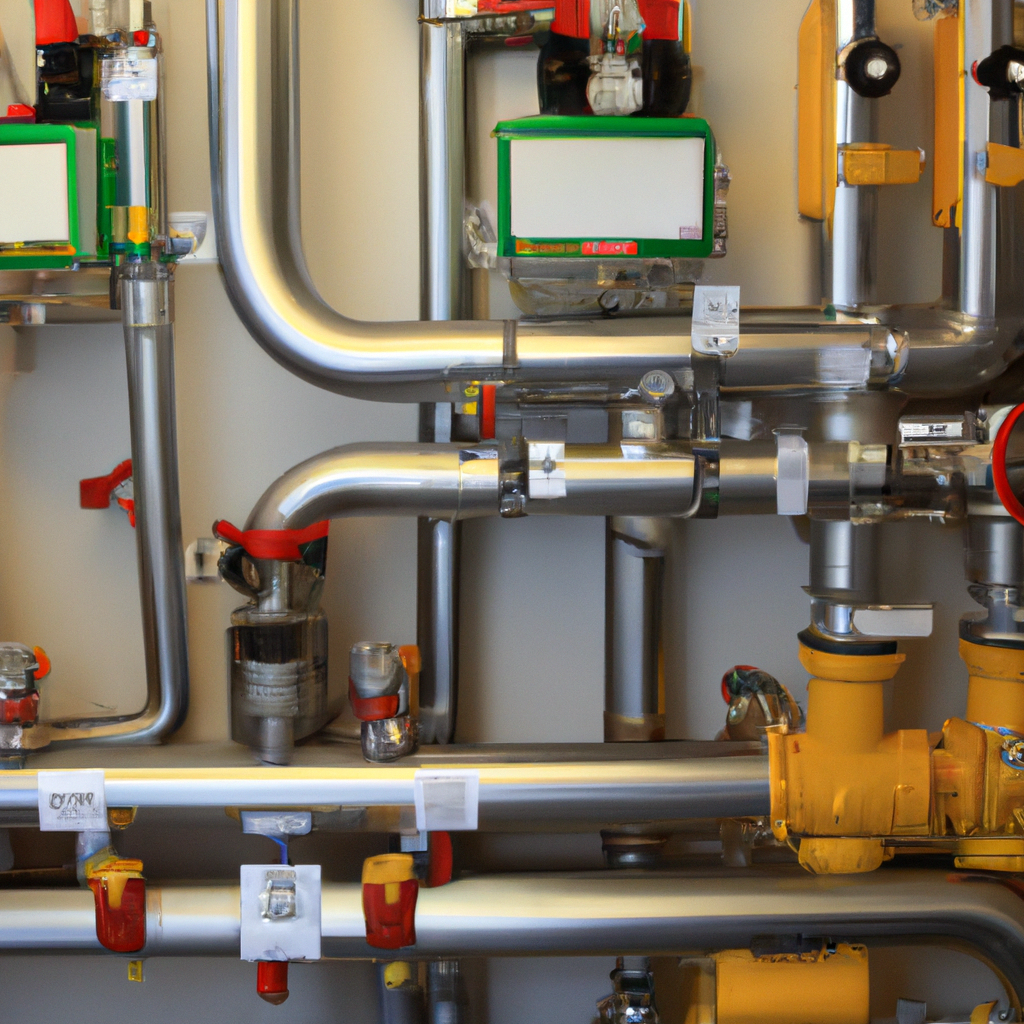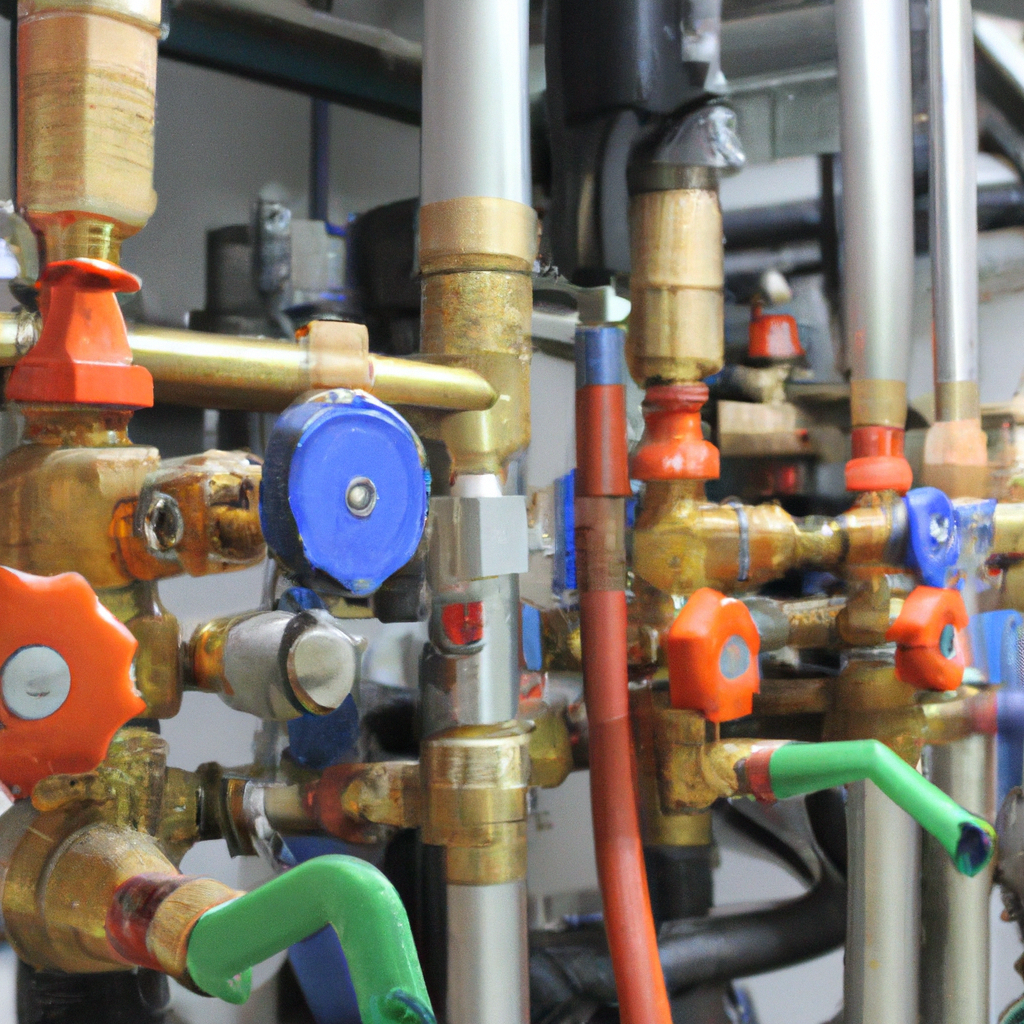
29 Sep The Energy-Efficient Choice: Gas Hot Water Systems for Your Home
When it comes to providing hot water for your home, there are several options to consider. One of the most energy-efficient choices available is a gas hot water system. In this blog, we will explore the many benefits of using a gas hot water system in your home and why it might be the right choice for you.

Understanding Gas Hot Water Systems
Before we dive into the advantages of gas hot water systems, let’s take a closer look at how they work. Gas hot water systems, also known as gas water heaters, use natural gas or propane to heat water. The basic components of a gas hot water system include a burner, a heat exchanger, a thermostat, and a storage tank (in the case of storage water heaters).
Here’s how it works:
Gas Burner: The gas burner is responsible for heating the water. When you turn on a hot water tap, a valve opens to release gas into the burner, which ignites to produce a flame.
Heat Exchanger: The flame heats a coil or heat exchanger, which is typically located inside the water tank. As water flows through the heat exchanger, it gets heated to the desired temperature.
Thermostat: A thermostat maintains the water temperature at the set level. When the water temperature drops below the desired level, the thermostat signals the burner to reignite and heat the water.
Storage Tank (if applicable): In storage water heaters, the heated water is stored in a tank until it’s needed. Tankless gas water heaters, on the other hand, heat water on-demand without a storage tank.
Now that we have a basic understanding of how gas hot water system work, let’s explore the reasons why they are an energy-efficient choice for your home.
Energy Efficiency
Gas hot water systems are known for their energy efficiency. They heat water quickly and efficiently, which means less energy is wasted in the process. This efficiency can lead to significant savings on your energy bills compared to electric water heaters.
One reason for their efficiency is that gas burns hotter than electricity, allowing gas water heaters to heat water more rapidly. Additionally, gas hot water systems typically have higher Energy Factor (EF) ratings compared to electric heaters, indicating their superior energy efficiency.
Cost Savings
Using a gas hot water system can result in substantial cost savings over time. While the upfront cost of purchasing and installing a gas water heater may be slightly higher than that of an electric heater, the lower operating costs more than make up for it.
Because gas is often cheaper than electricity per unit of energy, you’ll spend less on fueling your water heater. Moreover, gas heaters have a longer lifespan than electric ones, reducing the frequency of replacements and associated costs.
Faster Recovery Rate
Gas hot water systems have a faster recovery rate compared to electric heaters. This means that after you’ve used a significant amount of hot water, a gas heater can quickly replenish the supply, allowing multiple family members to take showers or use hot water appliances without experiencing a drop in temperature.
The fast recovery rate of gas water heaters is especially beneficial for larger households with high hot water demands.
Continuous Hot Water
If you choose a tankless gas hot water system, you’ll enjoy continuous hot water on demand. Tankless systems heat water as you use it, eliminating the need for a storage tank and the standby energy losses associated with it. You’ll never run out of hot water, no matter how long your showers or baths last.
Environmentally Friendly
Gas hot water systems are considered more environmentally friendly than some other options, especially if you use natural gas rather than propane. Natural gas is a cleaner-burning fuel compared to coal or oil, producing fewer greenhouse gas emissions. Additionally, the energy efficiency of gas water heaters reduces overall energy consumption.
Versatility
Gas hot water systems come in various sizes and types to suit different household needs. Whether you have a small apartment or a large family home, there’s a gas water heater that can meet your requirements. You can choose between tankless and storage systems based on your hot water usage patterns.
Reliability
Gas water heaters are known for their reliability and durability. They require minimal maintenance, and with proper care, they can last for many years. Electric water heaters may have more complex components that can wear out over time, whereas gas heaters are often simpler in design.
Independence from Electrical Supply
During power outages, gas hot water systems can continue to provide hot water, as they do not rely on electricity to function. This can be a significant advantage during emergencies or when the electrical supply is unreliable.
Government Incentives
Many governments offer incentives and rebates to encourage the installation of energy-efficient appliances, including gas hot water systems. These incentives can help offset the initial cost and make it even more financially attractive to switch to a gas water heater.
Increased Home Value
Installing a gas hot water system can increase the resale value of your home. Energy-efficient appliances are attractive to homebuyers, and the potential for lower utility bills can be a selling point for your property.
In conclusion, gas hot water systems are an excellent choice for homeowners looking to save on energy costs, enjoy continuous hot water, and reduce their environmental impact. Their energy efficiency, cost savings, and reliability make them a smart investment for any household. If you’re considering upgrading your water heater, a gas hot water system is a choice that will benefit both your wallet and the environment.

Sorry, the comment form is closed at this time.